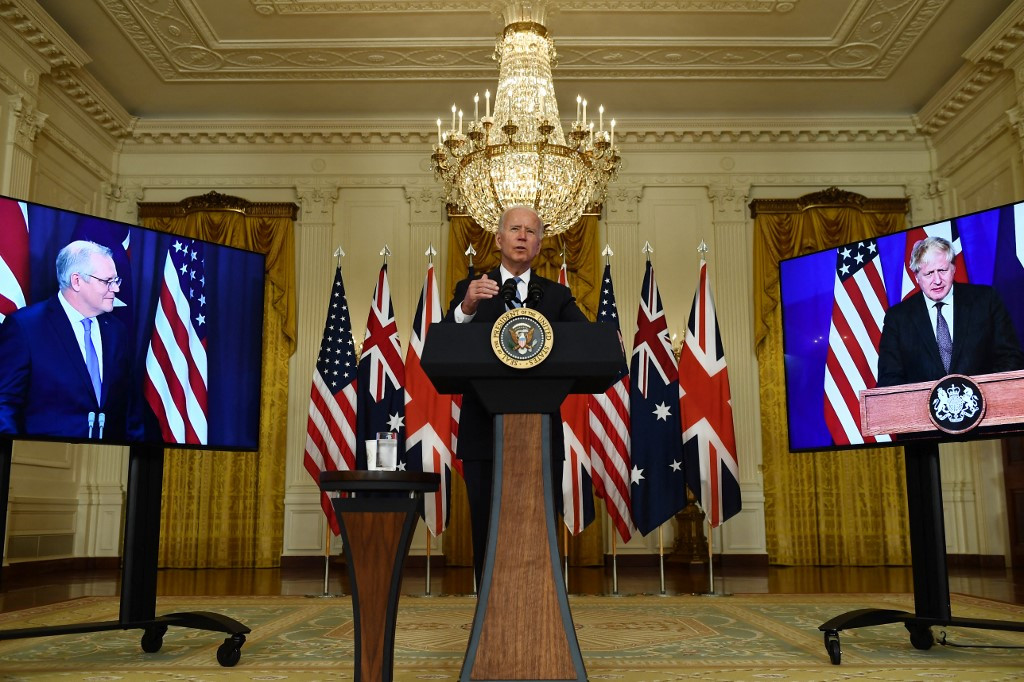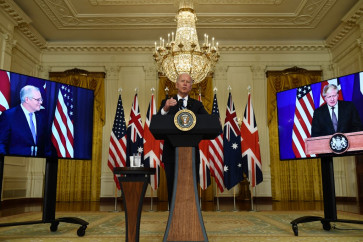Popular Reads
Top Results
Can't find what you're looking for?
View all search resultsPopular Reads
Top Results
Can't find what you're looking for?
View all search resultsAUKUS and Australia’s future nuclear submarine: Choices left for ASEAN
There is one crucial thing that China – and Indonesia too – got wrong: Nuclear-powered submarines are not the same as nuclear weapons.
Change text size
Gift Premium Articles
to Anyone
T
he announcement of a trilateral alliance of Australia, the United Kingdom and the United States in the Indo-Pacific, dubbed AUKUS, has surprised many, including the US' transatlantic allies and Australia’s neighbors.
Before making a judgment of AUKUS’ significance to the regional security architecture, we should ask what we know of the alliance besides the US promise to supply nuclear-powered submarines to Australia. Will Australia’s future possession of nuclear-powered submarines trigger a nuclear arms race? What cards are left for ASEAN to play to keep the region away from a seeming trajectory toward war?
Arguably formed to deter China, AUKUS has instead taken down France as its first victim, when Australian Prime Minister Scott Morrison announced the dismissal of US$90 billion worth of submarine contracts inked with France in 2016.
The second victim is New Zealand, previously in ANZUS, but now left as a bystander. Prime Minister Jacinda Arden has insisted upon a nuclear-free policy and has banned nuclear-powered submarine in the country’s waters, indicating disapproval of Australia's plan.
The third victim might have been the European Union, which was not consulted, but AUKUS utterly eclipsed its announcement of an Indo-Pacific strategy.
Inside Australia, whose public also remains in the dark on the alliance, concerns are also growing. Australia’s joining of the elite club that operates nuclear submarines will surely boost its deterrence and regional standing, but there are also downsides from economic, technological and strategic perspectives.
Australia’s decision to cancel the French submarines would render five years of work and $2.4 billion as a “sunk cost” (The Strategist, Sept. 23, 2021). This includes 350 jobs at Naval Group Australia and more when considering its supply chain companies.


















